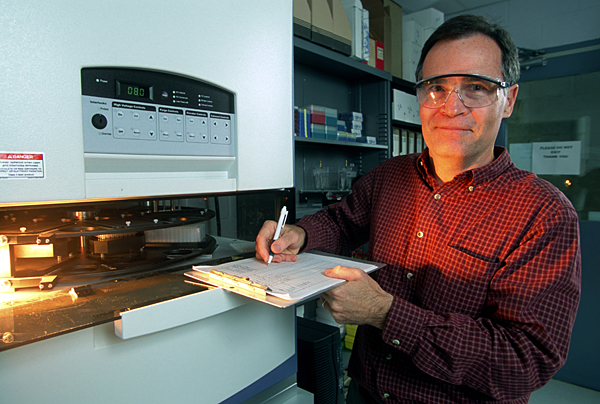
Fulbright project in New Zealand
CEOE's Patrick Gaffney to work in marine biosciences
10:16 a.m., Feb. 4, 2011----Patrick Gaffney, professor of marine biosciences in the College of Earth, Ocean, and Environment at the University of Delaware, has been selected for a Fulbright Specialists project at New Zealand's Victoria University of Wellington (VUW) during February and March.
Gaffney is one of more than 400 prominent U.S. faculty and professionals who will travel abroad this year through the program, which provides two- to six-week academic opportunities to support curricular and faculty development and institutional planning at academic institutions around the world.
Global Stories
Fulbright awards
Peace Corps plans
Taking part in the U.S. Department of State-sponsored program, Gaffney will contribute to field and seminar courses in marine biology at the VUW School of Biological Sciences. He said he hopes to develop partnerships that could lead to new possibilities for UD students.
“Since the University of Delaware has offered a number of field courses in New Zealand over Winter Session in the geological sciences, I would like explore the possibility of developing collaborative field courses in New Zealand, but more on the marine biology side,” he said.
During his trip, Gaffney also will work with shellfish biologists and aquaculturists on aspects of shellfish breeding and production. A specialist in oyster genetics research, he said he plans to learn from VUW's strong program in marine ecology and applied marine ecology.
“I'm hoping to expand my understanding of aquaculture genetics,” he said.
Gaffney holds a doctoral degree in biological sciences from the State University of New York at Stony Brook and a bachelor's degree in zoology from the University of California at Berkeley. He was a Fulbright fellow at Cambridge University's Department of Zoology in 1973-1974.
In addition to maintaining an active research program, at UD he teaches courses in population genetics, statistics for the marine sciences, and molecular tools used in marine biology.
Article by Elizabeth Boyle









